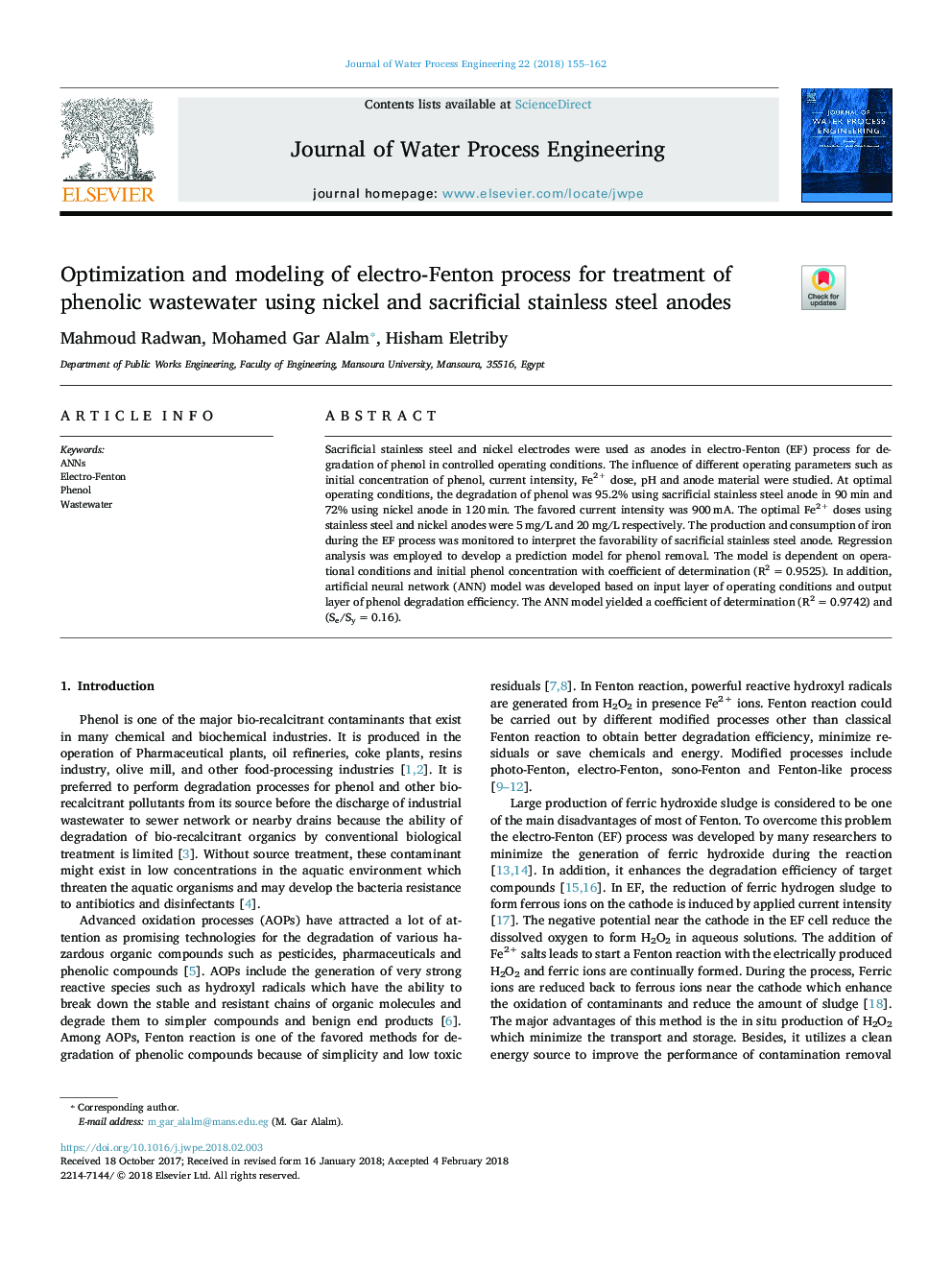| Article ID | Journal | Published Year | Pages | File Type |
|---|---|---|---|---|
| 6671981 | Journal of Water Process Engineering | 2018 | 8 Pages |
Abstract
Sacrificial stainless steel and nickel electrodes were used as anodes in electro-Fenton (EF) process for degradation of phenol in controlled operating conditions. The influence of different operating parameters such as initial concentration of phenol, current intensity, Fe2+ dose, pH and anode material were studied. At optimal operating conditions, the degradation of phenol was 95.2% using sacrificial stainless steel anode in 90â¯min and 72% using nickel anode in 120â¯min. The favored current intensity was 900â¯mA. The optimal Fe2+ doses using stainless steel and nickel anodes were 5â¯mg/L and 20â¯mg/L respectively. The production and consumption of iron during the EF process was monitored to interpret the favorability of sacrificial stainless steel anode. Regression analysis was employed to develop a prediction model for phenol removal. The model is dependent on operational conditions and initial phenol concentration with coefficient of determination (R2â¯=â¯0.9525). In addition, artificial neural network (ANN) model was developed based on input layer of operating conditions and output layer of phenol degradation efficiency. The ANN model yielded a coefficient of determination (R2â¯=â¯0.9742) and (Se/Syâ¯=â¯0.16).
Keywords
Related Topics
Physical Sciences and Engineering
Chemical Engineering
Chemical Engineering (General)
Authors
Mahmoud Radwan, Mohamed Gar Alalm, Hisham Eletriby,
